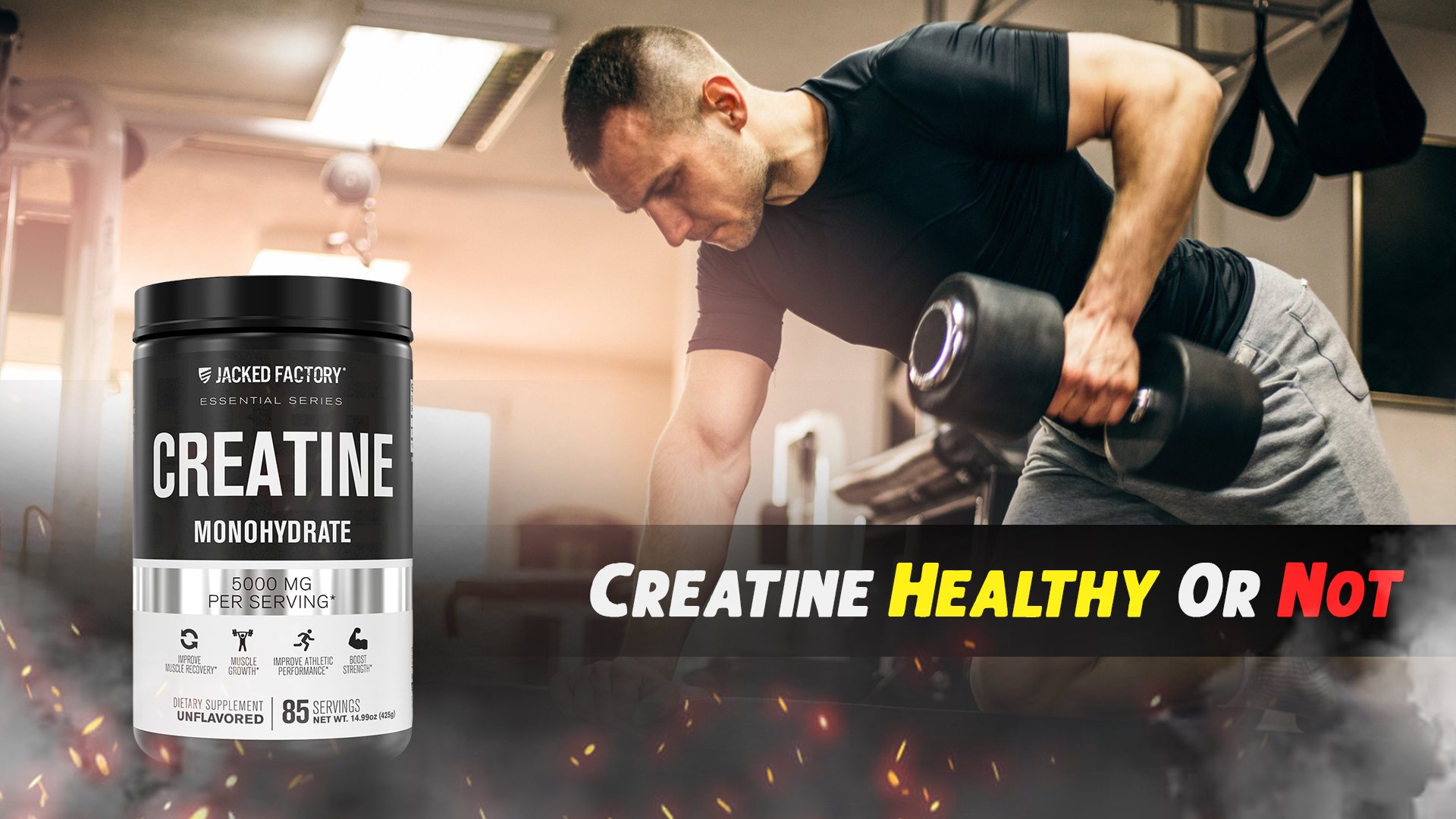Is Creatine Safe And Effective? Exploring The Evidence

Table of Contents
The Science Behind Creatine: How It Works and What It Does
Creatine is a naturally occurring compound found in the body and in certain foods like red meat and fish. It plays a crucial role in energy production within muscle cells. Specifically, creatine helps replenish adenosine triphosphate (ATP), the primary energy source for muscle contractions. This is achieved through the creatine phosphate (phosphocreatine) system, also known as the ATP-PC system. By increasing the availability of ATP, creatine allows for more intense and prolonged bursts of energy during high-intensity activities.
This increased energy availability translates into several key benefits:
- Increased muscle mass and strength: Creatine supplementation leads to significant gains in both lean muscle mass and strength, particularly in response to resistance training.
- Enhanced power output and athletic performance: Studies consistently show improved performance in various sports, including weightlifting, sprinting, and high-intensity interval training.
- Improved recovery from high-intensity exercise: Creatine aids in replenishing ATP stores, facilitating faster recovery between sets and workouts.
- Potential cognitive benefits: While evidence is less conclusive, some studies suggest potential benefits for cognitive function, particularly in individuals with specific cognitive impairments. More research is needed in this area.
Is Creatine Safe? Addressing Common Concerns and Side Effects
Many misconceptions surround creatine safety. While some experience mild side effects, serious adverse effects are rare when used as directed. Let's address some common concerns:
- Water retention and weight gain: Creatine draws water into muscle cells, leading to temporary water retention and a slight increase in body weight. This is not fat gain but rather an increase in muscle cell hydration.
- Gastrointestinal issues: Some individuals report mild gastrointestinal discomfort, such as bloating or diarrhea, particularly when starting supplementation. This is often mitigated by gradual introduction and proper hydration.
- Kidney damage: A common myth is that creatine harms the kidneys. However, extensive research, including long-term studies, has shown minimal adverse effects on kidney function in healthy individuals. This myth likely stems from the water retention effect.
Who should avoid creatine? Individuals with pre-existing kidney conditions should avoid creatine supplementation without consulting their doctor.
- Most side effects are mild and temporary.
- Long-term studies show minimal adverse effects in healthy individuals.
- Consult a doctor before use if you have pre-existing health conditions, especially kidney issues.
- Proper hydration is crucial to mitigate side effects like gastrointestinal discomfort and water retention.
Creatine Efficacy: Does it Really Work? Evidence-Based Results
The efficacy of creatine is well-supported by extensive scientific evidence. Meta-analyses and systematic reviews consistently demonstrate its positive impact on muscle growth, strength gains, and athletic performance. These benefits are observed across various populations, including athletes, bodybuilders, and even older adults.
- Numerous studies support its effectiveness for strength and power gains.
- Effective for various athletic populations and training styles.
- Optimal dosage recommendations: A typical loading phase involves 20 grams per day, divided into four 5-gram doses, for 5-7 days. Following this, a maintenance phase of 3-5 grams per day is sufficient.
- Results vary depending on individual factors: Factors such as genetics, diet, training intensity, and adherence to the supplementation protocol influence the observed effects.
Optimizing Creatine Use: Dosage, Timing, and Cycling
To maximize the benefits of creatine supplementation, understanding optimal usage strategies is crucial.
- Loading phase: This involves a higher initial dose to rapidly saturate muscle creatine stores. It’s commonly 20 grams daily for 5-7 days.
- Maintenance phase: Following the loading phase, a lower daily dose of 3-5 grams is sufficient to maintain elevated muscle creatine levels.
- Cycling creatine: Some individuals cycle creatine supplementation, using it for several weeks or months and then taking a break. However, continuous daily supplementation is generally equally effective and may be more convenient.
- Importance of hydration and nutrition: Adequate hydration and carbohydrate intake enhance creatine absorption and overall effectiveness.
Different forms of creatine exist, with creatine monohydrate being the most researched and effective form. Creatine hydrochloride is another popular form, often claimed to have improved solubility and reduced gastrointestinal side effects, but more research is needed to substantiate these claims.
Conclusion: Making Informed Decisions About Creatine Supplementation
In conclusion, creatine supplementation is generally safe and effective when used appropriately. The scientific evidence overwhelmingly supports its benefits for muscle growth, strength gains, and athletic performance. While mild side effects are possible, they are usually temporary and manageable. However, it’s crucial to consult a healthcare professional before starting any new supplement regimen, especially if you have pre-existing health conditions. Ready to explore the potential benefits of creatine for your fitness goals? Learn more about creatine supplementation and its effects by [link to further resources/consultation]. Remember to prioritize safe and informed use of creatine supplements.

Featured Posts
-
 Giant Sea Wall Kolaborasi Pemerintah Dan Swasta Untuk Perlindungan Pesisir
May 16, 2025
Giant Sea Wall Kolaborasi Pemerintah Dan Swasta Untuk Perlindungan Pesisir
May 16, 2025 -
 Dpr Setuju Rencana Presiden Prabowo Untuk Giant Sea Wall
May 16, 2025
Dpr Setuju Rencana Presiden Prabowo Untuk Giant Sea Wall
May 16, 2025 -
 Almeria Eldense En Directo Sigue El Partido De La Liga Hyper Motion
May 16, 2025
Almeria Eldense En Directo Sigue El Partido De La Liga Hyper Motion
May 16, 2025 -
 Where To Watch Ottawa Senators Vs Toronto Maple Leafs Game 5 Free Live Stream Options
May 16, 2025
Where To Watch Ottawa Senators Vs Toronto Maple Leafs Game 5 Free Live Stream Options
May 16, 2025 -
 Partido Venezia Napoles Donde Ver Online
May 16, 2025
Partido Venezia Napoles Donde Ver Online
May 16, 2025
